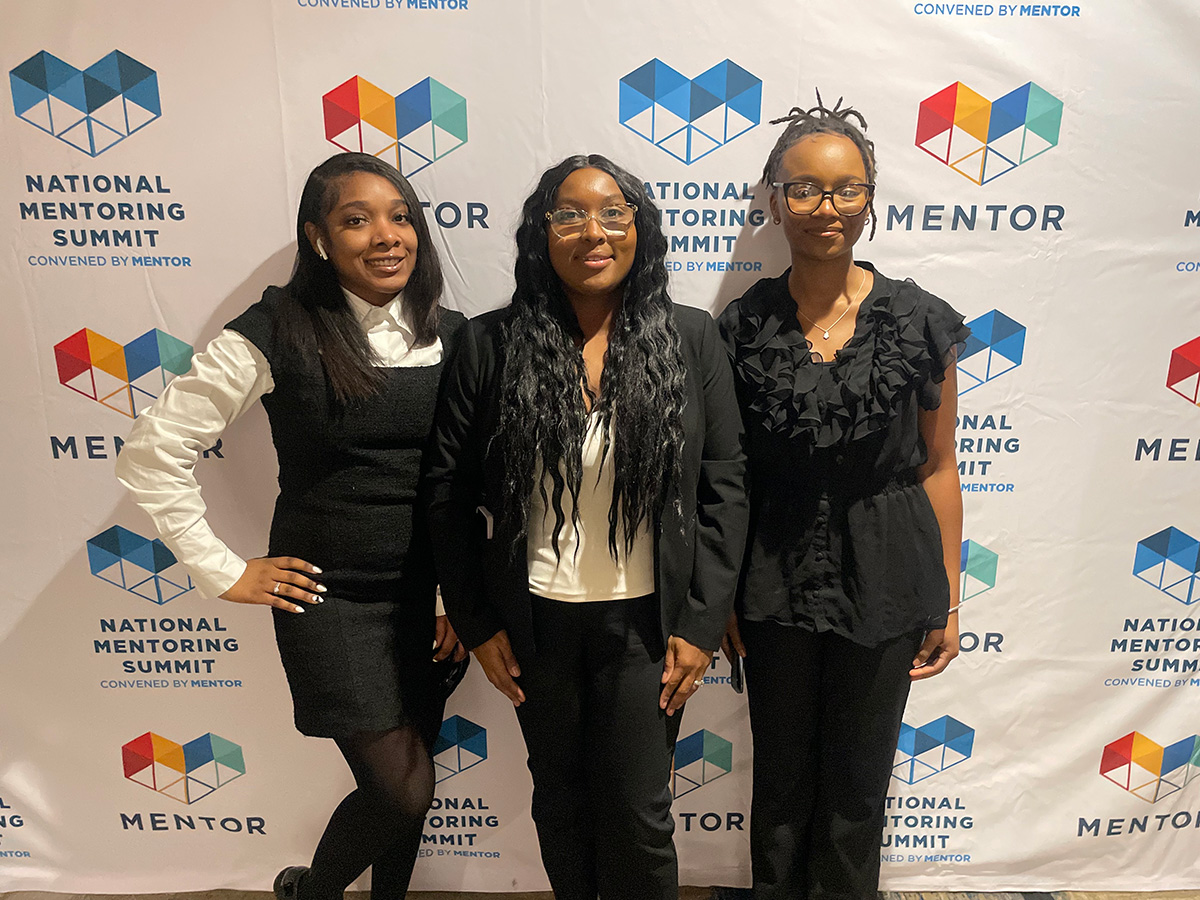Social Action and Justice Education Fellowship Represented at National Mentoring Summit

Dr. Keisha Robinson, the Social Action and Justice Education (SAJE) mentorship director, along with Amora Mitchell ’26 and Micah Deane ’27 traveled to Washington, D.C., to attend the National Mentoring Summit, an event sponsored by the nonprofit MENTOR.
“It is important for young people to attend events like this because it exposes them to the important work that is going on in various fields, while also enabling them to learn networking skills that can be fundamental in creating a successful career,” Dr. Robinson said.
The three-day event included breakout workshop sessions and plenary talks. Mitchell, a Math major with a minor in Education, enjoyed a session that parallels what she is trying to do at Arcadia.
“The most impactful workshop I attended was ‘Building Bridges: Starting a Mentorship Program at your School or College,’” she said. “I am working on creating a program between SAJE Fellow mentors and high school juniors and seniors that want to be teachers. The session gave me a lot of insight on how to get started and more.”
Deane, an Early Childhood Education major, took away a new perspective on mentoring after attending the conference.
“The summit had a significant impact on my perspective by broadening my understanding of how mentoring can be a powerful tool for personal and professional growth,” she said. “It emphasized not just skills transfer, but also emotional intelligence, active listening, and the importance of fostering growth in both mentors and mentees.”
In addition to what the students learned, Dr. Robinson gained knowledge and insight to bring back to Arcadia in the area of disability inclusion.
“As a Mentorship Director and professor, I find that many students come into college with disabilities and do not disclose this information due to stigmas or preconceived notions,” she said. “It is important when working in any mentorship program to be competent in the areas of disabilities and how they can have an impact on a student’s journey in college. Mentorship is not one dimensional, students are coming into mentorship programs with intersections of themselves that we need to unpack in order to serve them properly.
“The summit has motivated me to keep doing the mentorship work,” she continued. “Watching Amora and Micah experience the summit brought me so much joy and hope that we are creating a generation of students that will value and encourage the implementation of mentorship practices in the workforce.”
Networking was an important part of the event too. Other attendees at the event included mentoring practitioners, researchers, philanthropic investors, youth leaders, and government and civic leaders.
“I learned how crucial training and professional development for mentors is to create strong, long lasting, mentoring relationships,” Mitchell explained. “Other attendees gave me great advice about what steps to take and the direction I should move in regarding the program I would like to create.”
“I had the chance to connect with some incredible mentors and fellow attendees,” Deane said. “One conversation, in particular, about overcoming self doubt really resonated with me, reminding me how important it is to not only believe in others, but also in myself.”
Dr. Robinson hopes to be able to attend the conference again next year with Mitchell and Deane, this time as both participants and presenters.
“Although I have presented in several other conferences, I hope to present at the mentorship summit next year with Micah and Amora,” Dr. Robinson said. “I know they are capable of doing the work and will be exceptional leaders in the field of education. Exposure is the key to building the competence and confidence to do the necessary work.”

